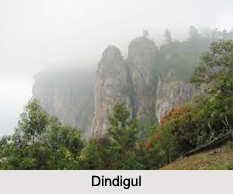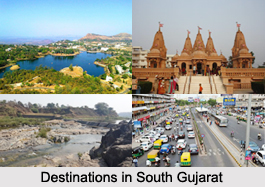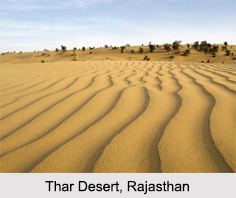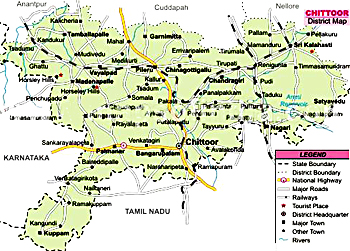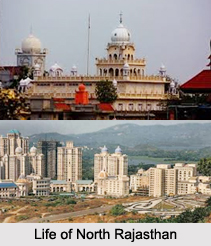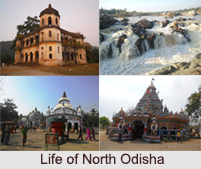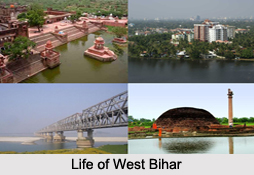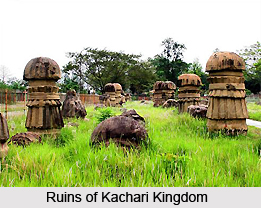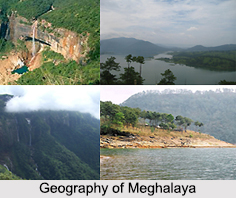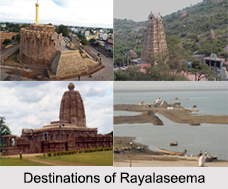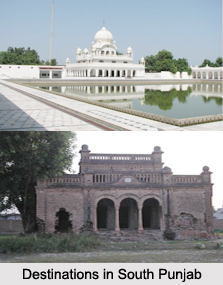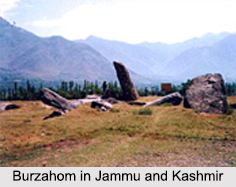 Burzahom is among the most prominent archaeological sites located in the Kashmir Valley in the Indian state of Jammu and Kashmir. Discovered by the Archaeological Survey of India this site describes the life style of the Neolithic people who used stone implements. This is one of the unique sites, which defines the pre historic civilisation that existed at the foothills of Himalayas. Unlike other sites this place is marked by some distinct features which provide unique information about the earliest civilisation in Kashmir. Surrounded by Birch trees this area is called Burzahom which means the `place of Birch`. This place is located on the bed of some dried -up lakes known as Karewars in Kashmiri language. Because of the forests and the lakes which surround the area, the place was selected as the most convenient place for the early settlers.
Burzahom is among the most prominent archaeological sites located in the Kashmir Valley in the Indian state of Jammu and Kashmir. Discovered by the Archaeological Survey of India this site describes the life style of the Neolithic people who used stone implements. This is one of the unique sites, which defines the pre historic civilisation that existed at the foothills of Himalayas. Unlike other sites this place is marked by some distinct features which provide unique information about the earliest civilisation in Kashmir. Surrounded by Birch trees this area is called Burzahom which means the `place of Birch`. This place is located on the bed of some dried -up lakes known as Karewars in Kashmiri language. Because of the forests and the lakes which surround the area, the place was selected as the most convenient place for the early settlers.
Location of Burzahom Site
Burzahom site is located in a village of the same name in Srinagar District. It is 16 km northeast of Srinagar elevated at 1800 meters above mean sea level. The northernmost excavated Neolithic site of India, Burzahom is located on an ancient Pleisticene Lake bed. The site gives an astounding view of the Dal Lake, which is located 2 km away from the site.
Life Style of Burzahom People
Burzahom as a historical site has been much different from other Neolithic sites of India. People living in this area adopted a strange way of living. They used to dig up pits inside the ground which used to serve as homes for these nomadic people. The area is full of deep pits and narrow pits which are narrow at the top but wide inside. This method was mainly adopted to avoid the cold weather of Kashmir. While the deep pits included few staircases at the entrance, the smaller pits had no such steps and people could easily jump in. These pits were plastered from inside with mud and were either oval shaped or round in structure. Hardly few of them are rectangular or square in shape. The pits included a number of holes in which they supposed to fix their roof. Overall these pits defined the homes of the early Neolithic people who resided in these areas.
Besides this the early Burzahom people used to make some simple man made pots of different shape and size which used to be either grey, red or brown in colour. The Neolithic Burzahom inhabitants used to manufacture some polished stone tools along with some tools made up of animal bones and antelers. These were used as harpoons of fishing, needles for sewing, as arrowheads, spear heads or as daggers for hunting. However the culture of the early settlers got changed to some extend with the passage of time. Apart from these human burials were also found in the campus. The Burzahom people used to bury their own people under their dwelling units or in the same campus. Some animal burials were also found in the area. The main occupation of these people was hunting and food gathering. Surrounded with number of dried lakes and forests the settlement had continuous source of food and water. The excavated burnt potteries and pieces of wood define that the people knew the use of fire and used to cook the raw food items.
Thus, the Neolithic site of Burzahom was discovered along with other sites like Begagund, Gofkral, Hariparigom, Olchibag, Pampur, Panzgom, Sombur Waztal and Brah. These sites only defined the distinct culture that developed in the foothills of Himalayas. With some major attractions like Neolithic vessels, potteries and other weapons these throw some light on the lifestyle of the pre-historic civilisations who resided in these areas.
Visiting Information to Burzahom
Srinagar Railway Station and Srinagar International Airport are the nearest to visit the site. National Highway 44 connects Burzahom to other parts of the country.







